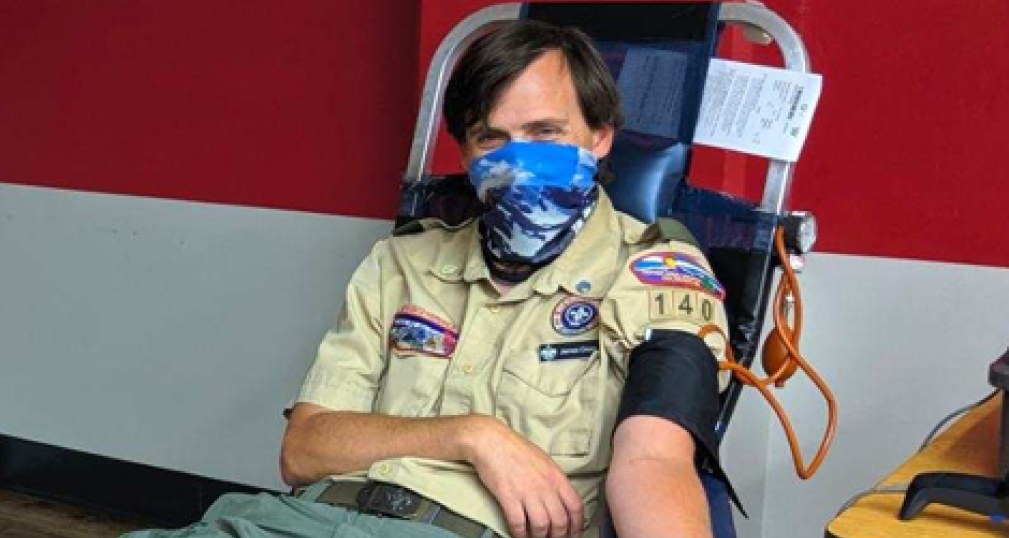Coronavirus responses have significantly impacted the U.S. blood supply as Vitalant and other blood centers across the country cope with stabilizing blood inventories to meet patients’ transfusion needs. Since the coronavirus pandemic started, Vitalant—the nation’s second largest blood collector—has had nearly 2,000 blood drives canceled, resulting in more than 57,000 uncollected blood donations.<>
Vitalant strongly recommends that healthy donors schedule an appointment for a donation over the coming days and weeks—instead of donating without an appointment right now—to help us better serve donors and appropriately manage the blood supply.
Please call 877-25-VITAL (877-258-4825) or schedule your appointment online now. Vitalant has nearly 125 donation centers across the country; donors also can give blood at mobile blood drives. It’s critical that healthy donors continue to give blood—and organizations continue to organize and host blood drives—to maintain a strong blood supply for patients.
“Our challenge will remain for weeks, if not months,” said Cliff Numark, Senior Vice President of Vitalant. “We need donors to make appointments today for these future dates—as we will struggle to replace donations as blood drives continue to cancel. You can help patients by making an appointment today for a date in the future and, of course, by keeping your appointment.”
The Centers for Disease Control and Prevention (CDC) encourages people who are well to continue to donate blood as it is an essential activity, even amidst COVID-19 response measures. “In healthcare settings all across the United States, donated blood is a lifesaving, essential part of caring for patients,” the CDC declared in a March 19 statement. “CDC is supporting blood centers by providing recommendations that will keep donors and staff safe…and encouraging donors to make donation appointments ahead of time.”
Dr. Jerome Adams, U.S. Surgeon General, encourages healthy people to visit blood donation sites. “One thing we should all consider, especially our Millennials and Gen Zs, is donating blood…as an essential part of caring for patients….”
“Social distancing does not need to mean social disengagement. You can still go out and give blood.” – Dr. Jerome Adams, U.S. Surgeon General
FEMA has specifically identified blood donation as an “essential and integral component of the emergency support function.” In a March 19 letter to all emergency management agencies, FEMA Administrator Pete Gaynor stressed: “Donating blood is a safe process and people should not hesitate to give. Just as the social distancing guidance recommends that it’s okay for people to leave home for necessities like groceries, or a doctor’s visit, or the pharmacy—donating blood is a necessity.”
“Our blood collection sites are a ‘first response’ action to this outbreak versus a gathering that needs to be avoided,” said Dr. Ralph Vassallo, Vitalant’s chief medical and scientific officer. “If you’re healthy, your blood donations are needed over the coming weeks and months. We have to be ready once elective surgeries resume because the need for blood will increase. In addition, as more people become infected, it will put a strain on the available number of healthy blood donors.”
Sick people should not donate blood; blood centers do not test for COVID-19 or the virus that causes it. Blood centers have always required individuals to be in good health to donate, and the blood collection process follows policies established by the Food and Drug Administration (FDA) to ensure the health and safety of donors and patients. Vitalant staff follow rigorous safety, disinfection and distancing protocols at its blood drives and donation centers. Giving blood has no impact on the donor's immune system.
Currently, all blood types and components are needed, especially type O blood donations. Type O-negative blood is the universal blood type: ER doctors reach for it first to help stabilize patients before their blood type is known.
Vitalant continues to closely monitor the situation and will quickly implement any necessary changes as new information emerges from the CDC and FDA.
- More information about COVID-19 can be found at:
https://www.cdc.gov/coronavirus/index.html - More information about COVID-19 and donor eligibility can be found at:
https://www.vitalant.org/Donate/Donor-Eligibility.aspx

